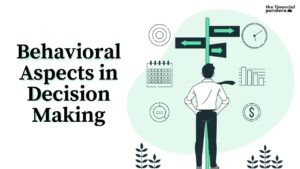A business comes to life when it solves a problem. If it’s an auto manufacturing company, it helps you travel faster. If it’s a restaurant, you get to taste new dishes. If it’s toothpaste, it saves you the embarrassment. But a lot of work goes into making a sale to solve the problem, and all these processes are run by people.
We need people for virtually everything – to raise funds, to invest in assets, to manufacture goods or provide services, to market and distribute them, deal with customers, resolve disputes within and outside, and administration of all the functions.
Moreover, no business runs in isolation; it is always dependent on another entity (business or individual) for resources and funds. And the GDP of a country hinges on the performance of its businesses. And at the heart of it all are the people who run it.
So when the contagion hit China, people across the globe were at the risk of contracting it and vulnerable ones at the risk of death. Sure, we could impose absolute and complete lockdown, isolate and treat the infected patients to prevent further spread until we have no traces of the virus left, and everyone is safe. But we all understand its dire consequences.
With people unable to step outside, production is impossible and all the logistics is left redundant. With earnings stalled, companies across sectors would have to cut down on all their costs and layoffs would follow soon. Interdependence between businesses means the ripple effects would be felt in countries and economies across the globe. Simply put, if everything came to a standstill, each person would survive only until reserves lasted.
So for obvious reasons, governments and companies had to work out ways to keep operations running to the extent possible to protect jobs and hence, livelihoods. Of course, most economies took a beating. But the impact varied across sectors and companies- many went under, some managed to keep their head above water, and some shined.
So, while there is no absolutely covid-proof business, exploring the ones that shined will give us an idea about the extent of mitigation of the pandemic’s ill-effects.
The Performers
Information Technology
To keep the businesses running, companies now had to enhance remote working tools like software and cloud based solutions. At a time when the lockdown was the most stringent, Indian IT giant Infosys saw its first quarter revenues grow over the previous quarter. This is impressive considering a steep fall in India’s GDP during the same period, but unsurprising nevertheless.
As remote work became the norm, there was a surge in usage of videoconferencing apps. Zoom witnessed tremendous growth in maximum number of daily meeting participants post covid. But it didn’t come without security lapses. Google Meet and Cisco Webex may have gained market share from it, in addition to their own success in this space.
Entertainment
The lockdown slammed the brakes on all the fun of dining, movies, shopping, events, and get-togethers, so we turned to our screens. We ardently caught up to all that was missed on Amazon Prime, Netflix, Hotstar, Youtube and the like, also called as the OTT (over-the-top) platforms.
Broadband
Internet has become a necessity. And work from home (WFH), virtual meets, binge-watching in lockdown pushed its demand even higher. The better connection quality and speed of fixed (or wired) broadband over mobile broadband makes it more desirable for WFH requirements.
A mint article indicates that the wired broadband has very low share in the total broadband subscription market in India. It signals a good opportunity for the wired broadband service providers and some are already seeing growth, as per the article.
Ed-Tech
Along with work, education too had to move online. Teachers turned to online applications like Microsoft Teams, Zoom, and WhatsApp to conduct online classes among which Google classrooms stood out.
Schools and colleges adopted ed-tech solutions like EduMarshal to take all their administration activities online- admissions to scheduling lectures and hosting content to student database management and everything in between. Another platform, Classplus helps digitise operations of coaching centres, and saw good growth post lockdown.
Apart from these B2B solutions, B2C services that catered to K-12 (Kindergarten to 12th standard) students directly also saw growth. Platforms providing such services include Byju’s, Vedantu and Toppr. And with employees having more time on hand and many looking for jobs, online courses on upskilling platforms like Udemy or Coursera saw a surge in users.
Essentials
Survival is paramount, so you can’t compromise on necessities. Both Britannia and Tata Consumer Products reported good growth in the 1st quarter over the same period last year. However, this growth was restricted to household brands or the ‘essential’ segments of companies. The consumer naturally avoids unimportant expenditure in times of crisis.
Confined to their homes, people turned to grocery delivery apps to get essentials delivered. So platforms like Grofers, BigBasket, Amazon Pantry, and Jiomart got real busy during lockdown.
But the production and distribution of these food products ultimately depends on a stable agriculture output. And a good harvest needs to be supported by logistics, which froze during the lockdown.
Agritech firms like Ninjacart helped farmers find buyers. Increased digitization in general and more so during covid helped the agriculture sector too, with startups leveraging data and technologies to make farming more efficient.
Although the pharmaceuticals also fall under the essentials category, high dependence on China, border tensions and supply chain disruptions affected the sector’s growth. However, e-pharmacy startups grew in reach 2.5 times, taking over a good share of distribution from physical pharmacy stores during lockdown.
Digital payments
The pandemic has also changed how we pay for all our transactions. We’ve shifted from hard currency to digital payments in the fear of contracting the virus, as indicated by the high growth in UPI transactions post lockdown. Digital payment firms like PhonePe, Paytm, and Amazon Pay are beneficiaries of this trend.
The Resilient Ones
What we’ve covered so far were some sectors and companies that did well during the lockdown. But if we look closely, they were well placed to succeed. They offered products that are centred on basic needs, and online or digital offerings. So these are one kind of covid-proof businesses, whose revenues are not impacted for the most part.
The other are the resilient kind. Even though the pandemic might have rendered their products useless or paralyzed their operations for a while, they’re in a position to bounce back quickly.
Revival efforts
Considering muted demand and lesser sales, they’ll focus on cutting expenditures to protect their profits or reduce losses. Operations would be relooked to eliminate inefficient processes. Administration would be relooked to eliminate non-value-added activities. Layoffs if necessary would be done amicably and with utmost care.
To make whatever little they can, they’ll also try making their products more palatable to consumers through innovation or revising prices. And payment terms with suppliers are re-negotiated as much as their customers delay payments.
The lockdown gives room to the company to revamp the assets that support the business. Equipment are replaced, new technologies are explored. Expansion opportunities are explored for future projects considering low property prices. Acquisitions are explored considering low valuations, and the support and benefits (aka synergies) it perceives from other businesses.
Funding is sought from banks or private investors. If people are optimistic about the company’s future, IPOs too might be considered.
Every company tries all these measures in the hopes of reviving its business. But only few are able to implement and see results. It’s because only those few are well positioned to take those measures through cooperation and support of those associated with it.
Let’s picture the journey of a “well positioned” company.
It has humble beginnings, with a product as a new or better solution to a market problem. Over time, customers like its product and trust it. With demand and good sales, banks and investors grow interested to fund its operations. It is able to expand, and invests in cost saving technologies. More sales, more profits, more money follows. Funds are reinvested in the business or invested to diversify into other businesses, excess funds are prudently utilized to either make safe investments or to give returns to investors. And its products adapted according to change in consumer preferences.
As this virtuous cycle continues the company scales well, has a wide range of product offerings, builds credibility in the marketplace and makes a lot of money. Banks, investors, suppliers, customers and people at large now trust it. Once trust is won, it develops the power to negotiate and gains preference over others.
When any abnormality like covid hits the company, its cash reserves and less affected business verticals cushion the impact. And it has enough room to take recovery measures and expect positive results.
Big conglomerates and companies like Aditya Birla, Tata, Reliance, Hindustan Unilever are good examples. For instance, while the cigarettes and hotel segments of ITC have suffered, it has taken a host of measures to support the revival in its other businesses. Aditya Birla group is reassessing the business models of its group companies to better cope with the pandemic.
Overall, sound business practices over years and the resultant reputation help a company become the resilient one.
The Opportunists
It is intuitive for big, popular companies to remain insulated from the pandemic. At the same time, not all small companies went under. Few found opportunity during covid, and pivoted their operations to survive, as detailed in an article.
Hula Global, a garment manufacturing company started producing masks, PPE kits and other essential items. Bengaluru-based Workshala, a co-working space started providing furniture for convenient work from home. Shree Shakti, a kitchenware manufacturing company turned to sensor based sanitizers, automatic foot sanitizers and hands-free wash systems.
Being nimble helps. And the best part is, they get to go back to their specialty once everything’s normal.
The Question
Let’s revisit our question- what makes a business covid proof?
Although we focused on covid, not all natural or economic anomalies were, are, or would be covid-like. And businesses must be prepared for any of them.
Covid’s impact was felt first and most in the transport and hospitality sectors. Tomorrow some other sector may take the hit from another anomaly. It is not always possible to stay on the right side of a situation.
If a business finds itself on the wrong side, being nimble will help it take advantage of opportunities and possibly monetize it. And until it does, the business is able to endure the difficulties due to the benefits of sound business practices that it has reaped over the years.
This approach almost always works, for a business to see through disruptions and for people to see through setbacks. And with this going long enough, there will come a time when disruptions and setbacks seem like opportunities, and we’re sorted regardless.
Follow Us @





Nice macro view of the situation.
Thank you Ankita